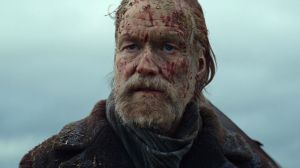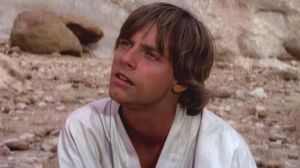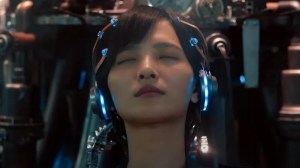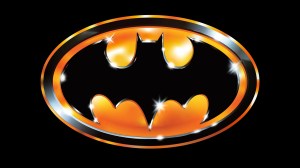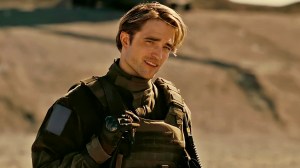A vocal group of longtime Star Trek fans has taken issue with Star Trek: Discovery. This goes beyond the cosmetic changes that have modernized the show’s style, introduced new uniforms, and redesigned the Klingons yet again. Some fans feel like the show simply doesn’t fit into the utopian vision of the franchise, and that the characters feel compromised compared to the paragons of past series.
Videos by ComicBook.com
The reality is that the Star Trek universe has never been as perfect and idealized as some fans think, and that compromised characters doing questionable things have always been a part of it. The fact that Star Trek has an optimistic vision of the future does not mean that its world is utopian or that its characters are perfect. The difference is simply that Discovery is asking fans to spend more time with Star Trek‘s flawed characters than with its icons.
One primary example of this is Captain Gabriel Lorca, played by Jason Isaacs on Star Trek: Discovery. By the very virtue of being the captain of a Starfleet ship on a Star Trek series, Lorca is compared to the likes of Captains James T. Kirk and Jean-Luc Picard. Fans forget though that Kirk and Picard, even within the Star Trek universe, were among the most famous and respected officers in Starfleet. Captain Sisko literally stands in awe of Kirk when he travels back in time and has the chance to meet him. They are exceptional, not the average.
In contrast to Kirk and Picard, who despite their different leadership styles are both known to stand on principle, Lorca is a realist. He’s also practical and, in a time of war, that makes him seem aggressive, so much so that some fans have theorized he may actually be from the mirror universe, where similarly aggressive versions of prime timeline characters exist.
The Captain

Mirror universe theory aside, the most recent episodes of Star Trek: Discovery revealed that, at least according to Admiral Cornwell, Lorca wasn’t always like this. Lorca’s ship was destroyed by his own hand in order for his crew to be spared what he believed was a fate worse than death. The event left him physically and emotionally damaged, with a case of 23rd-century post-traumatic stress syndrome.
These traits and this history make Lorca much more comparable to a character like Commodore Matthew Decker. As revealed by Discovery, Decker was one of Starfleet’s most decorated captains. However, as seen in the Star Trek: The Original Series episode “The Doomsday Machine,” Decker’s encounter with an ancient alien instrument of mass destruction and the death of his crew left him a shadow of his former self so obsessed with the machine that he took control of the Enterprise away from Kirk in order to go bring the ship on a suicide run.
Another example is Admiral Pressman from the Star Trek: The Next Generation episode “Pegasus,” who had a mission not entirely dissimilar to Lorca’s mission with the Discovery. Pressman was attempting to develop a cloaking device for Starfleet, a weapon that would give them a considerable advantage in warfare. Pressman crossed the line in that he was breaching a longstanding treaty with the Romulan Star Empire, but it goes to show that Lorca isn’t the first Starfleet officer in Star Trek history to have an eye for combat tactics and technology.
The Crew

Some fans feel the problem goes beyond the captain, to the competitive nature of the crew, particularly between Michael Burnham (Sonequa Martin-Green) and Saru (Doug Jones). These fans seem to feel that this level of attempting to one-up each other is too petty behavior for Starfleet officers.
But again, there is a precedent. In the classic Star Trek: The Next Generation two-parter “The Best of Both Worlds,” there is an entire subplot devoted to Commander Riker and Lt. Commander Shelby competing for the right to be the First Officer on the Enterprise. The fact that Riker has the captain’s chair of another starship waiting for him makes his unwillingness to give the position to Shelby seem particularly petty. Not to mention, in the 24th century’s mostly post-scarcity society, what does career advancement really matter to someone beyond personal pride?
What may be challenging Star Trek fans the most is that Discovery is asking them to both empathize with these characters more than any other Star Trek series has, and to spend more time with them due to the show’s serialized nature and the fact that these are main characters and not guest stars.
The Stories and Universe

Another struggle seems to be with the storytelling style of Discovery, but now that the show has moved past the pilot that mostly served as a prelude, Discovery has been true to Star Trek‘s core storytelling mechanics.
Most Star Trek stories involve a problem and the search for a scientific and ethically acceptable solution to that problem. Many fans had a problem with how the Discovery crew used the tardigrade, a living thing, as the solution to Discovery‘s navigation problems. However, all it took was another episode for Burnham to address that very problem and find a more acceptable solution. The idea that an unresolved plot point such as that would be seized upon in a future episode is new for Star Trek fans, but narrative arcs, while extended, hit mostly the same beats.
There are other complaints as well, such as how Vulcan society seems more than a little bit racist towards human and having its own brand of extremist terrorists, which clashes with idyllic assumptions about how the logic-based Vulcans behave and how their society works. The more time you spend with any society, the more of the cracks you see it in, and that seems to be the case here. It’s also important to remember that these societies evolve and grow as time goes on, and that the Vulcans from the 22nd century on Star Trek: Enterprise did not perfectly fit the mold established by the Star Trek series that came before either.
The Future

Star Trek: Discovery is still Star Trek. The core of Trek storytelling is present, it just moves at an unusual pace, and the ideals are still present for its characters to aspire to, they just also prove more difficult to achieve.
In “Choose Your Pain,” Harry Mudd wondered if Starfleet officers ever look down at the little people below. What Star Trek: Discovery asks of its viewers is to turn their gazes away from the heroes of Star Trek on their pedestals, for whom the franchise’s ideas seemed to come so easily, and look upon the others for whom achieving Starfleet’s lofty goals is a struggle.
In a way, more than any Star Trek series before it, Discovery is about the journey rather than the destination.
New Star Trek: Discovery episodes become available to stream Sundays at 8:30 p.m. ET on CBS All Access.
[Embed id=58328]Star Trek: Discovery (TVShow: star-trek-discovery)[/Embed]


